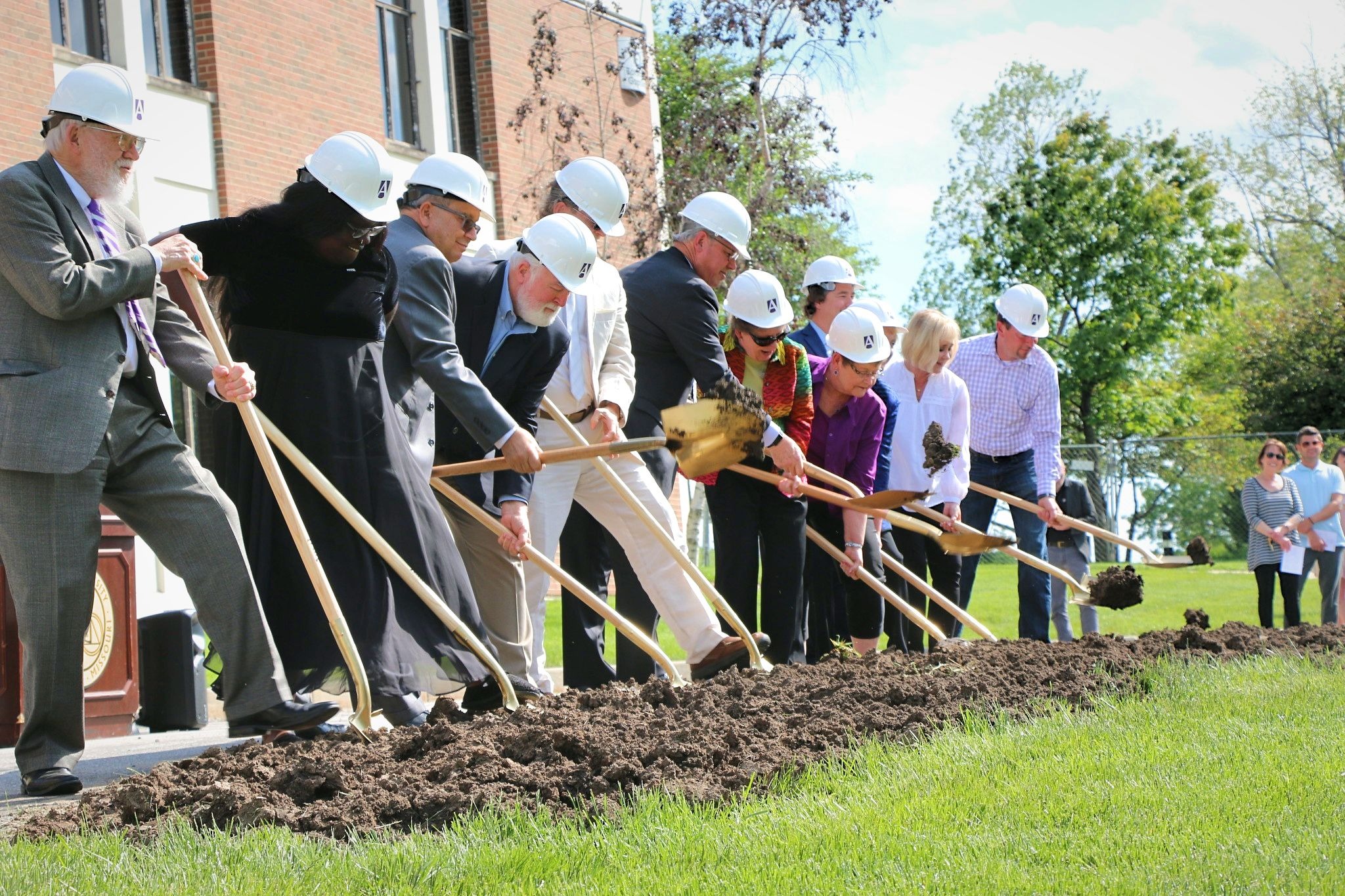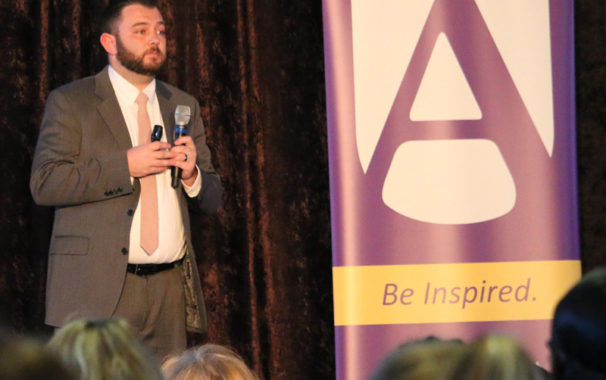A capacity audience rapt with attention listened as Reggie Shaw shared his powerful, heart-breaking story of a moment’s inattention that changed his life forever during the 2019 Harry S. Truman Distinguished Lecture on October 14 in the Avila University Athletic Pavilion.
On a morning in 2006, Shaw headed to work on a route he took every day. Looking down at his mobile phone to send a message, he struck a car, resulting in a multi-car accident that left two dead. As the dangers of texting and driving remained a little understood phenomenon at the time, he failed to comprehend the seriousness of what happened.
“My car pulled to the left and I met another car in the middle,” Shaw said in a statement taken after the crash. “We clipped each other, and he spun out behind me. The truck and trailer behind me then T-boned him and they ended up in a ditch.” For several years he denied texting while driving, despite the fact his phone number sent and received 11 texts in the time around the accident. During his talk, Shaw admitted he still does not remember messaging on his phone, or the accident itself in great detail.
The crash, its causes and the aftereffects of the incident inspired Pulitzer Prize recipient Matt Richtel to first cover the trial in a series of articles appearing in the New York Times. Subsequently, these articles became the basis of A Deadly Wandering, the book selected for the Common Reading Program in Avila’s First Year Experience course.
“We invited Reggie to be our Truman Series lecturer in the hope that his message will save lives,” said Sue Ellen McCalley, chair of the Truman Lecture Series. “His emotional and moving speech drove home a lesson to students, alumni, faculty and staff that we need to consider our actions whenever we get behind the wheel of our car. Our hope is that every driver will put down their phone while driving and make the roads safer for all.”
Shaw used numerous examples and studies to drive home the seriousness of the issue, including a study that showed using a phone reduced a driver’s attention span to that of a driver with a .16 blood alcohol level, twice the legal limit in the state of Missouri. However, many drivers fail to connect the negative impact of connectedness on attention once they are on the road, a point he emphasized repeatedly.
“If you were in a car with a friend you knew was drunk, would you let them drive?” Shaw asked the audience. “But a lot of us don’t think about letting them use a phone while they’re driving. We’re content to do that despite the fact the effects of alcohol and cell phone usage while driving have been shown to be similar.”
Shaw addressed students taking the First Year Experience course during a workshop earlier in the day in the Whitfield Center, leading small-group conversations on people impacted by distracted driving in the Kansas City area. Additionally, he surveyed the students on their attitudes toward cell phone usage while driving, the results of which he shared during the lecture.
“Reggie’s story and its causes and consequences serve as a cautionary tale for all of us, and it was incredibly powerful to hear from him,” said Paige Illum, director of student engagement and success. “He has chosen to relive one of the worst days of his life to educate others on how to avoid the same mistake he made. That service and his pursuit of right relationships with others are the ideals we want to share with our first year students.”
The Truman Distinguished Lecture Series began in 1971 when former President Harry S. Truman gave his approval for Avila University to offer a lecture series in his name. After a brief break in the series, it was re-begun in 2012 thanks to the support of Joseph ‘16 and Sue Fahey.

